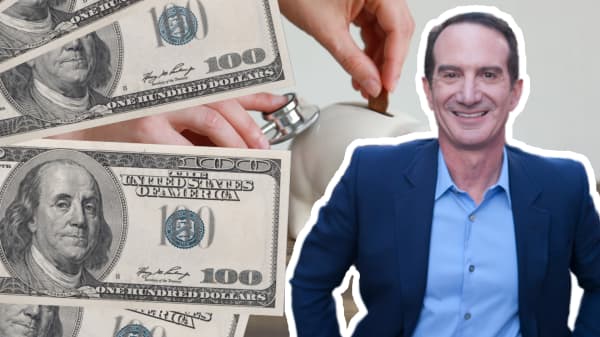CNBC – make it
1 in 5 millennials with debt expect to die without ever paying it off
Megan Leonhardt January 9, 2019
The average millennial (aged 18 to 34) had about $32,000 in personal debt, excluding home mortgages, last year, according to Northwestern Mutual’s 2018 Planning & Progress Study. That debt can feel both crushing — and endless.
Just over 60 percent of millennials (classified here as those aged 18-37) with debt don’t know when, or if, they’ll ever be able to pay off what they owe, according to a new CreditCards.com report. That includes roughly 42 percent of millennials who don’t know when they’ll be able to wipe out their debt, and almost 20 percent of those who expect to die in debt.
There are some bright spots in the data: Among those aged 18 to 30 with credit card debt specifically, 79 percent say they have a plan to wipe it out. On average, they expect to be debt-free by age 43, CreditCards.com finds.
Still, a lot of young people are feeling trapped. A lot of older people, too: Over 35 percent of those over age 73 predict that they’ll never pay off their debt.
Making a plan to tackle debt can help
Debt doesn’t have to be a life sentence, says CreditCards.com industry analyst Ted Rossman. Though it may require some hard work and planning, he says, “Everybody can get out of debt.”
It can help to make a plan. After picking up several freelance jobs in 2018 and limiting his spending to about $2,000 a month — “there were times when I ate peanut butter and jelly sandwiches until I ran out of peanut butter, and then I just ate jelly sandwiches,” he recalls — 34-year-old Dietrich Knauth celebrated his birthday by paying off the last of his $117,000 in student loans.
And 32-year-old Guen Garrido managed to pay off $68,600 in about three years after drawing inspiration from the “snowball method” and YouTube tutorials.
It also helped her to set a target date by which she would have paid off everything she owed. “I think a lot of people think they’re never going to be debt-free, so they don’t even try to get out,” Garrido says. “But once you set a date, you start to think, ‘OK, I can do this,'” she says.
Getting creative can work, too: 27-year-old John Sweat, who temporarily moved into his van, expects to be debt-free by the end of next winter. “I’ve spent most of my adult life feeling like I have a ton of money, or feeling really strapped and on the edge,” he says. “Right now, I feel more financially competent and stable and well-set up than I ever have.”
Northwestern Mutual recently found that two in 10 people put over 50 percent of their income toward getting out of debt. If you can’t do that, though, don’t sweat it. The nonprofit American Consumer Credit Counseling recommends allocating about 5 percent of your income towards that goal.
Remember your other financial priorities, too
While having a plan is an important first step toward becoming debt- free, Rossman says that millennials would benefit from a comprehensive approach. “Take a long view of your finances,” he says.
While student loans can “feel like an albatross around your neck,” Rossman says, there’s usually hope, because many student loans have built-in, easy-to-understand expiration dates. Still, educational debt, though it represents the biggest portion of the average millennial’s debt, is just one kind of loan.
Rossman recommends planning for a future that may include big purchases such as a home or a car, as well as expenses such as children and retirement.
Put aside a portion of your income — most experts recommend at least 10 percent — for retirement, he suggests, rather than throwing everything you’ve got at paying off what you borrowed for school.
David Bach
Additionally, you should aim to have three-to-six months of living expenses set aside in an account earmarked for emergencies. That can sound like a lot, so start small, says David Bach, co-founder of AE Wealth Management. Consistently save a percentage of your paycheck by setting up automatic transfers.
“When your paycheck gets deposited, move money automatically from your checking account into a separate money market account or a separate savings account that you won’t touch,” Bach tells CNBC Make It. “You literally want to almost forget it’s there.”
The key thing to remember is “it’s good to be attacking multiple priorities at once,” Rossman says. Otherwise, when different expenses or crises arise, you’ll simply have to “re-start the debt clock.”



